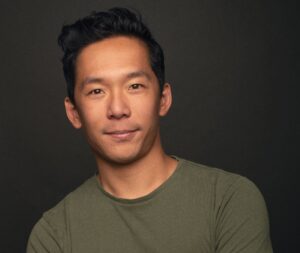When networking feels overwhelming, embrace Shine Theory
Why Shine Theory creates more accountability and investment in other’s success than networking.

Last week, the Ragan community came together and celebrated at Disney World during our annual Social Media Conference. In two weeks, Ragan returns to our hometown of Chicago for our annual Employee Communications and Culture Conference. Event season has returned in time for spring, and we couldn’t be more excited.
But live events, and the networking they bring, are not a natural or easy experience for all to navigate. On the contrary, some feel overwhelmed at the enormity of new faces, names and details to remember. Others may not like crowds. Others, still, can feel put off by forced interactions.
Thankfully, there are ways to build your community with intention and make it feel substantive.
Created by authors and co-hosts of the “Call Your Girlfriend” podcast Aminatou Sow and Ann Friedman, Shine Theory was practiced privately by the friends for years before they explained it in their best-selling book, “Big Friendship: How We Keep Each Other Close.”
On their website, Sow and Friedman describe Shine theory as a long-term investment to help someone else become the best version of themselves and trust them to do the same.
“People know you by the company you keep,” they write. “Shine Theory is recognizing that true confidence is infectious, and if someone is tearing you down or targeting you as competition, it’s often because they are lacking in confidence or support themselves. It’s a practice of cultivating a spirit of genuine happiness and excitement when your friends are doing well, and being there for them when they aren’t.”
Sow and Friedman specify that this practice is not the same as networking.
“Shine Theory is not about trying to help everyone you meet along the way in your career, because if you’re doing it right, it’s simply not possible to invest deeply in that many people,” they explain. “There are only so many hours and so many email replies in any given day.”
“Shine Theory is intentional. It is accountable. It is personal.”
For these reasons, those who find themselves overwhelmed in a networking scenario may do well to start planting the Shine Theory seeds to grow their community
We caught up with Cat Collela-Graham, adjunct professor, employee experience expert and coach at Coaching for Communicators, to better understand how Shine Theory can serve as a balm to networking bloat.
Building your village
Collela-Graham cites the work of author Dan Buettner, who researches areas where the elders live longest and designates them “Blue Zones,” as proof of community’s outsized influence on individual success.
“He spent 30 years writing a thesis and studying Blue Zones to find out what makes people live and thrive the longest,” she said. “The central tenet is community.”
When Collela-Graham looks at her professional and personal community, she asks how each person helps her thrive and how she can help them thrive, too.
“There’s a mutual symbiotic relationship there that you don’t necessarily get with LinkedIn contacts,” she said. “LinkedIn contacts are going to hit me up for business or sales or all that good stuff, then a couple days later say ‘I haven’t heard back from you.’ And that’s one-way accountability.”
Collela-Graham pointed out that no sustainable relationship works that way.
“It has to work with the intentionality of cultivating and curating a village where you feel strongly that you can support someone else in achieving their goals, even if they directly compete with yours,” she said. There’s enough room at the table for everybody.”
This, in essence, is Shine Theory.
“It’s a very sacred thing to me,” Collela-Graham continued. “If I’m in your village and you’re in my village, I will do everything to help you shine because if you shine, I get this warm glow and I shine because I’ve been standing the corner cheering for you.”
Collela-Graham added that there is a weight to building your community through this practice, because all connections are fortified by intention. “You have weight because I value your opinion,” she said. “I value the fact that you know me personally and professionally enough to introduce me to someone who’s going to matter. It doesn’t go unnoticed.”
It doesn’t need to be a formalized partnership. “But you can set the ground rules, share what’s important to you and how you want to operate,” said Collala-Graham.
Those operating principles are important because they set the precedent that you’re both meant to leave people better than you found them.
When networking
If you’re at a conference and nervous about networking, it makes sense. Smiling and waving at someone, then introducing yourself, doesn’t mean they’re necessarily going to be in your village.
“Maybe they’re in your village for a moment, and that’s OK too,” Collela-Graham said. But there are ways you can frame the conversation to figure out who you may be worth inviting in down the road.
Start by asking them to tell you about themselves, as opposed to what they do.
“Get to know the human behind the profession, because professions change,” said Collela-Graham. “Most people have a kaleidoscope patchwork quilt of all the different things they’ve done in their lives. What their job is won’t define who they are and what they’re going to mean in your village.”







